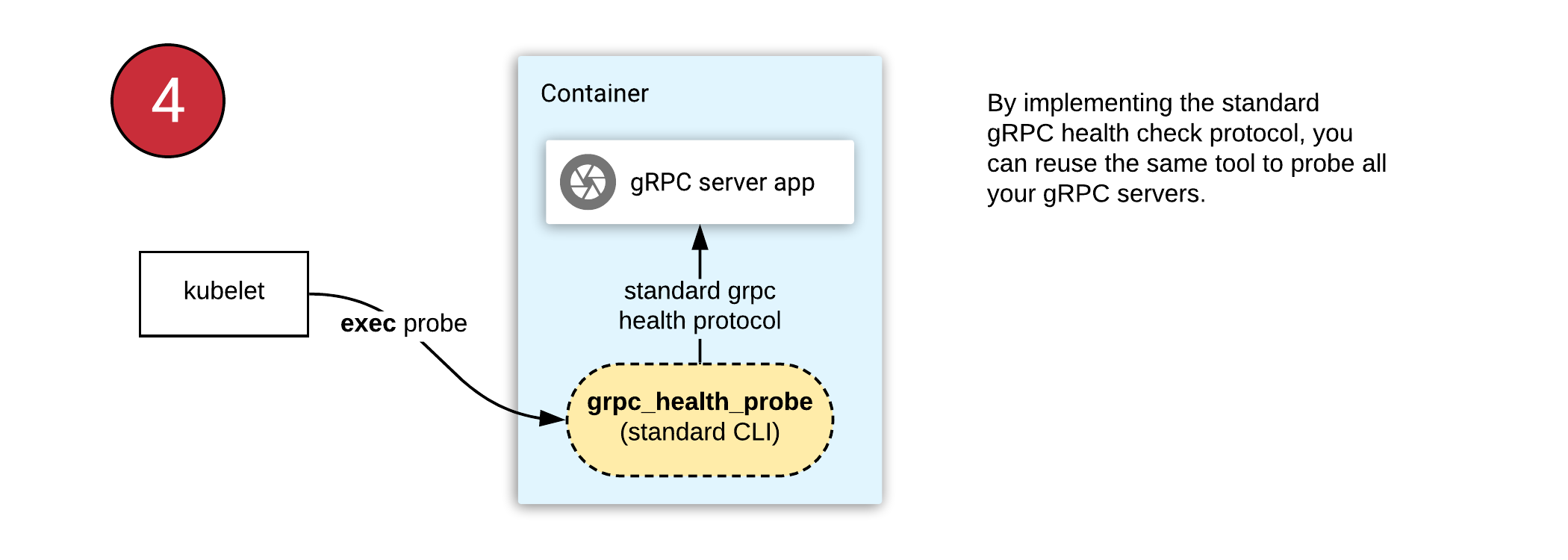Black lives matter.
We stand in solidarity with the Black community.
Racism is unacceptable.
It conflicts with the core values of the Kubernetes project and our community does not tolerate it.
We stand in solidarity with the Black community.
Racism is unacceptable.
It conflicts with the core values of the Kubernetes project and our community does not tolerate it.
Author: Ahmet Alp Balkan (Google)
gRPC is on its way to becoming the lingua franca for communication between cloud-native microservices. If you are deploying gRPC applications to Kubernetes today, you may be wondering about the best way to configure health checks. In this article, we will talk about grpc-health-probe, a Kubernetes-native way to health check gRPC apps.
If you're unfamiliar, Kubernetes health checks (liveness and readiness probes) is what's keeping your applications available while you're sleeping. They detect unresponsive pods, mark them unhealthy, and cause these pods to be restarted or rescheduled.
Kubernetes does not support gRPC health checks natively. This leaves the gRPC developers with the following three approaches when they deploy to Kubernetes:
Can we do better? Absolutely.
To standardize the "exec probe" approach mentioned above, we need:
Thankfully, gRPC has a standard health checking protocol. It can be used easily from any language. Generated code and the utilities for setting the health status are shipped in nearly all language implementations of gRPC.
If you
implement
this health check protocol in your gRPC apps, you can then use a standard/common
tool to invoke this Check() method to determine server status.
The next thing you need is the "standard tool", and it's the grpc-health-probe.

With this tool, you can use the same health check configuration in all your gRPC applications. This approach requires you to:
In this case, executing "grpc_health_probe" will call your gRPC server over
localhost, since they are in the same pod.
grpc-health-probe project is still in its early days and it needs your feedback. It supports a variety of features like communicating with TLS servers and configurable connection/RPC timeouts.
If you are running a gRPC server on Kubernetes today, try using the gRPC Health Protocol and try the grpc-health-probe in your deployments, and give feedback.